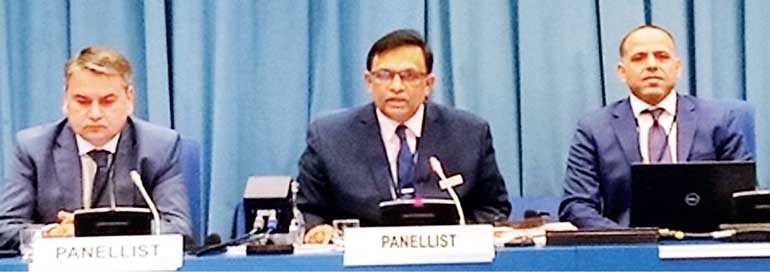Tuesday Feb 24, 2026
Tuesday Feb 24, 2026
Thursday, 26 September 2019 02:23 - - {{hitsCtrl.values.hits}}


The reform process undertaken by the government of Sri Lanka to restructure the national anti-corruption strategy has been brought to the attention of the United Nations Office on Drugs and Crime (UNODC) at Vienna, September this year.
The National Action Plan (NAP) launched in March 2019, was highlighted with its foundation of four pillars: prevention measures; enhancing value based education and community engagement; institutional strengthening of CIABOC and other law enforcement agencies; and law and policy reforms. The design, development and launch of this Action Plan was a culmination of national and international commitments and best practices.
The reforms embarked upon by Sri Lanka were highlighted, including the initiative to recruit 200 graduate investigation officers, setting up of a full-fledged Prevention Unit consisting of 50 prevention officers, introducing a new composite Act incorporating the Bribery Act, CIABOC Act and Asset Declaration Law, a digitised asset declaration system. The amendment to the Bribery Act to give the High Courts the jurisdiction to hear corruption cases, and amendment to the Commissions of Inquiry Act empowering the CIABOC to take cognizance of the evidence given by the witnesses at commissions of inquiry were recognised.
These reforms were highlighted by the Director General of the Commission, Sarath Jayamanne, the focal point of combating bribery and corruption in Sri Lanka, as a panellist in the Open-ended Intergovernmental Working Group on the Prevention of Corruption on the invitation of the UNODC. The presentation of the Director General was commended by the UNODC Secretariat and the Member States.
The Sri Lanka Mission in Vienna, in coordination with the UNODC Secretariat, called for a multi-lateral side-line meeting which makes it obligatory for Member States to share best practices.